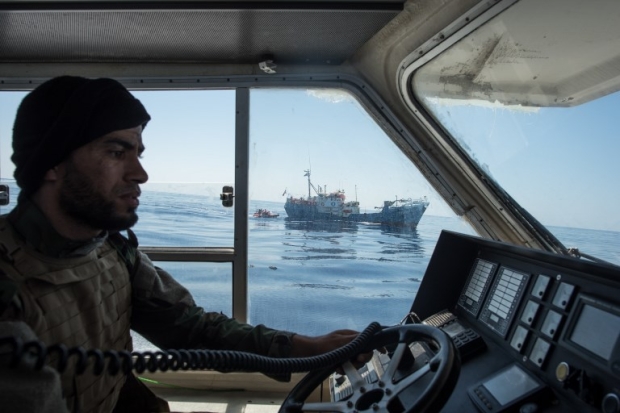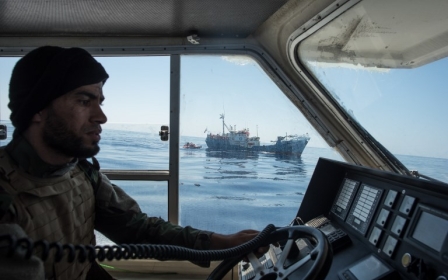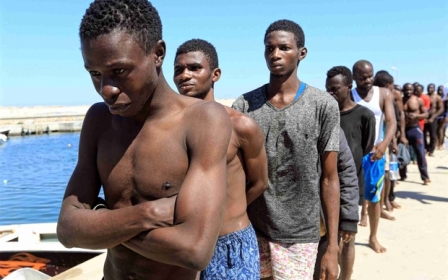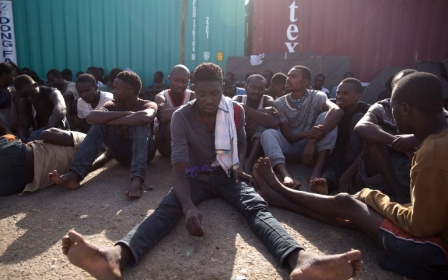European governments complicit in abuse of migrants in Libya: Amnesty
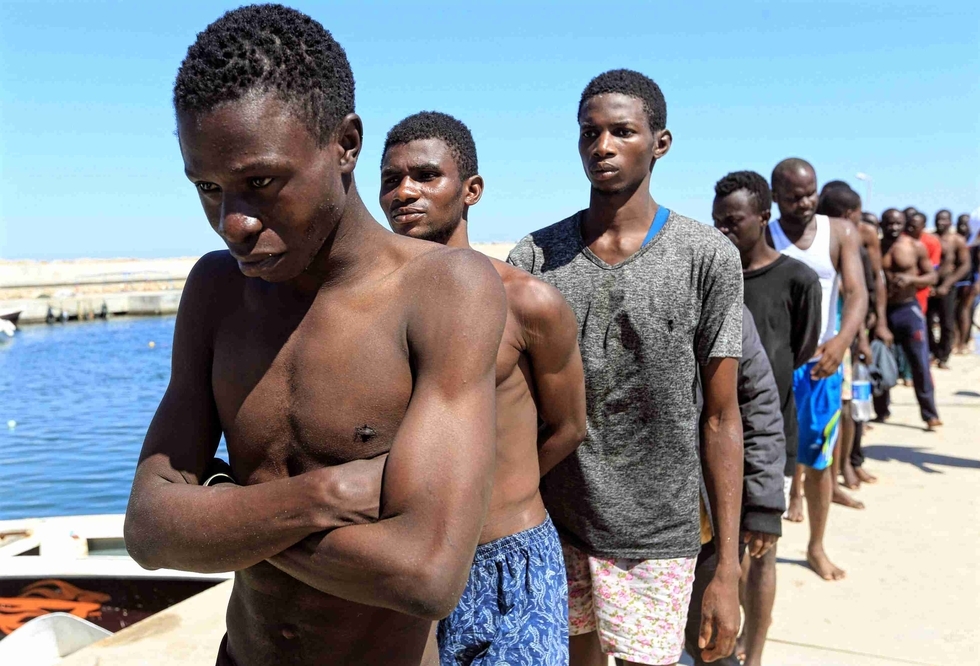
Despite repeated warnings, European governments have continued to actively support a “sophisticated system of abuse and exploitation of refugees and migrants” by Libyan authorities, according to an Amnesty International report released on Tuesday.
The document, titled “Libya’s dark web of collusion,” details European governments’ complicity in the human rights abuses against migrants when they reach Libya.
According to the group, EU governments’ cooperation with Libyan immigration authorities, including the coast guards, have contributed to the “appalling conditions” that migrants are facing in the North African country.
Reports of human trafficking and enslaving detained migrants in Libya have caused an international uproar.
“European governments are knowingly complicit in the torture and abuse of tens of thousands of refugees and migrants detained by Libya,” Amnesty said in the report.
The report follows the release of CNN footage in November of a live auction in Libya where black youths were presented to North African buyers as potential farmhands and sold for as little as $400.
Even before that, the UN High Commissioner for Human Rights Zeid Ra'ad al-Hussein on 11 September denounced “horrific abuses migrants face after being intercepted and returned to Libya”.
“Extra-judicial killings, slavery, torture, rape, human trafficking and starvation are only some of the abuses reportedly inflicted on migrants in both official and informal detention centres,” he added.
'European governments have not just been fully aware of these abuses; by actively supporting the Libyan authorities in stopping sea crossings and containing people in Libya, they are complicit in these crimes'
- John Dalhuisen, Amnesty’s Europe Director
And in April, the International Organisation for Migration (IOM) had reported that its staff had discovered “slave markets” along migrant routes, where hundreds of men were being subjected to torment.
Amnesty’s Europe Director, John Dalhuisen, said: “European governments have not just been fully aware of these abuses; by actively supporting the Libyan authorities in stopping sea crossings and containing people in Libya, they are complicit in these crimes.”
The report criticises EU countries, singling out Italy, for implementing a “series of measures aimed at closing off the migratory route through Libya and across the central Mediterranean, with little care for the consequences for those trapped within Libya’s lawless borders.”
European support for Libyan agencies
European governments have provided technical support to the Libyan Department for Combatting Illegal Migration (DCIM), which is responsible for running the detention centres. Refugees and migrants are in most cases arbitrarily and indefinitely held in these facilities, where they are exposed to torture and other serious human rights violations, Amnesty said.
EU countries have also provided training and equipment such as boats, to the Libyan Coast Guard, enabling them to intercept people at sea, including in international waters, it added.
The report also revealed that European governments have struck deals with local authorities, armed groups and tribal leaders in the North African country, encouraging them to prevent the smuggling of people to Europe.
Recent investigations by Middle East Eye revealed that armed groups have been stopping migrant boats from leaving Libya in exchange for aid, aircraft hangars and large sums of money.
'EU countries should not feign shock or outrage when the human cost of these deals is laid bare'
- Amnesty report, Libya’s dark web of collusion
In August, MEE revealed that armed groups are receiving payoffs to stop the boats leaving Libya.
The number of arrivals in Italy has fallen by 67 percent between July and November 2017 in comparison with the same period in the previous year.
"EU countries should not feign shock or outrage when the human cost of these deals is laid bare," the report said.
A spokesperson for the Italian prime minister, Filippo Sensi, told MEE that the government does not comment on anonymous allegations.
The IOM identified 432,574 migrants in Libya, with estimates of the number being much higher.
Following well documented abuse of refugees and migrants in Libya, the European Court of Human Rights ruled in 2012 that it would be “unlawful, including as a violation of the prohibition of torture and other ill-treatment, for those states operating any vessel rescuing people at sea to return refugees and migrants to Libya”.
However, returning migrants to Libya has been an important part of the EU’s strategy of reducing migration towards Europe.
According to the report, since 2016, the Italian government's position shifted from prioritising saving lives at sea, to reducing the number of people who cross to Europe. This approach received the complete backing of other European governments.
Earlier this year, the Italian ministry of Interior put together a code of conduct for NGOs, which included provisions that do not comply with international human rights law or with humanitarian provisions within the law of the sea.
The code of conduct put restrictions on the search and rescue activities in Libyan waters, and limits the transfer of rescued people from one rescue vessel to another.
New MEE newsletter: Jerusalem Dispatch
Sign up to get the latest insights and analysis on Israel-Palestine, alongside Turkey Unpacked and other MEE newsletters
Middle East Eye delivers independent and unrivalled coverage and analysis of the Middle East, North Africa and beyond. To learn more about republishing this content and the associated fees, please fill out this form. More about MEE can be found here.


